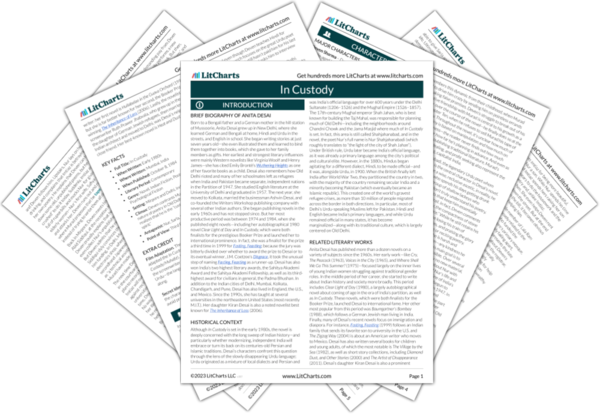Imtiaz forces Nur to confront the bitter truth that, at least for the time being, she is the more successful poet. Not only does her work pay the bills, but her performance is also clearly doing more to revitalize the Urdu language than Nur’s parties. Her fight with the other woman—Nur’s
other wife, Safiya—initially makes no sense at all to Deven. So, this visit to Nur’s house ends the same way as the first one: Nur’s family descends into a chaotic fight, and Deven flees. After all, staying would mean trying to figure out what is happening, intruding on a family’s private affairs, and above all, looking squarely at Nur’s shortcomings.
